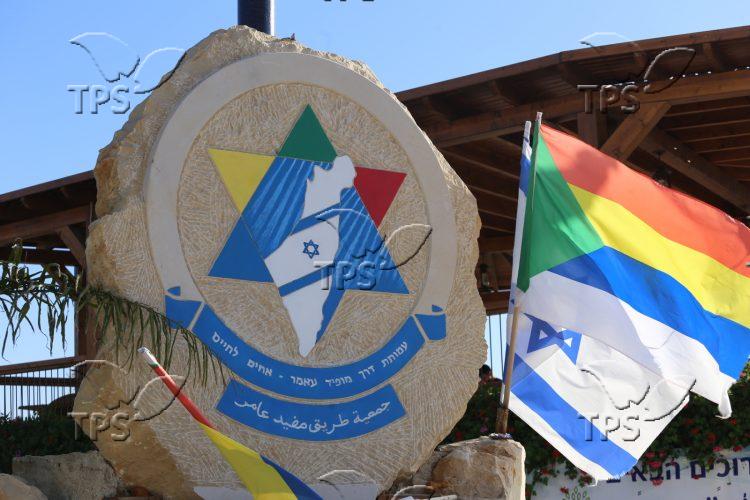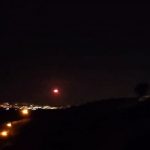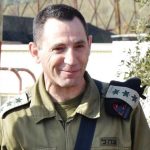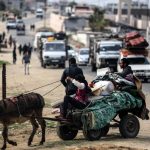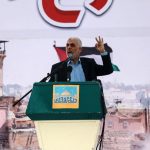Israeli Druze Grapple With Challenges Amidst War and Feelings of Discrimination
Jerusalem, 7 December, 2023 (TPS) -- The serene village of Hurfeish, nestled amidst the picturesque hills of northern Israel, conceals the complexities and deep-seated struggles faced by the Druze community in the midst of an ongoing conflict.
Since Hamas’s October 7 massacre and the Gaza ground war that followed, six funerals have marked the somber toll the war has exacted on this tight-knit community. The Druze, renowned for their historic neutrality before forging a partnership with Israel during its infancy, now find themselves in a less harmonious relationship with the state.
Since the War of Independence, Hurfeish has mourned the loss of 494 of its sons in Israel’s wars, a testament to Druze community’s unwavering commitment to the nation. However, feelings of discrimination pervade among the 7,000 residents.
One immediate problem is that while most Jewish communities near the Lebanese border have been evacuated, Hurfeish and seven other Druze villages have not. Hurfeish is a little over two kilometers from the border. It’s not that everyone wants to leave. But residents who wish to evacuate — particularly the elderly and families with small children — don’t qualify for financial assistance, and nobody understands why. The village councils are preparing to file a joint petition to the High Court of Justice to address this.
At least 250,000 Israelis living near the Gaza and Lebanese borders have relocated to hotels and guest houses in safer areas. Recognition that a community is in a dangerous area means government support for the move.
The feelings of discrimination are further exacerbated by the 2018 Nation-State Law which has left lingering bad feelings among Israel’s 145,000 Druze. This law, establishing Israel as the nation-state of the Jewish people, omitted values of equality and marginalized the status of the Arabic language.
‘Covenant of Blood’
Druze serve in senior positions of public and military life, and the bond between Jewish and Druze soldiers is referred to as the “covenant of blood.” Druze speak Arabic, but are not Muslim and very secretive of their religious beliefs. The Druze communities of Israel, Lebanon and Syria regard themselves as descendants of the Biblical Jethro, the father-in-law of Moses.
Six soldiers from Hurfeish have been killed since Oct. 7, and the dissonance between the Druze’s significant contributions and feelings of discrimination has been amplified. Calls for legislative changes and initiatives, including granting special status to the Druze community and enabling post-army opportunities for the youth, have emerged. Efforts like the approval of construction allocations for communities and expanded post-army opportunities attempt to address these grievances.
On the outskirts of Hurfeish, where roads are scantily traversed and the proximity to the Lebanese border looms, a subdued atmosphere prevails. Amidst the sporadic battles with Hezbollah, reservists organize themselves while a local restaurant, offering Lebanese cuisine, stands desolate.
“The only activity here is that of our cleaner, who makes the place shine but it’s not clear who walks by,” he says. “We give free food portions to the soldiers who pass through here” but the spirit of volunteerism that has characterized Jewish society since October 7 has not passed over the Arab-Muslim society, he laments.
At the entrance to Hurfeish, soldiers can be seen training on APCs. A woman emerges from one armored vehicle, emphasizing the importance of women in the current war and sparking Druze debate about the role of women in society and integration into Israeli society in general.
Farash Sabek, the local council secretary, vehemently opposes the proposed law to regulate the community’s status, deeming it a “mockery.” He emphasizes the urgency of changing the nationality law, advocating for equal treatment and expressing fears of diminishing linguistic rights.
Amidst these challenges, the Druze community faces evacuation orders in settlements near the border, with several excluded despite meeting the criteria. Economic repercussions and pleas to government officials highlight the plight of affected residents.
The Druze, known for their unique burial customs rooted in a belief in the reincarnation of souls, mourn their dead without formal ceremonies, burying them in communal pits without tombstones. Nor do they visit the communal grave on the anniversary of the death of individuals.
This belief, central to the Druze heritage, echoes their ethos of heroism and fearlessness in the face of death, and stems from their beliefs about the reincarnation of souls.
But in a telling deviation from their ancient customs — and as a sign of solidarity with Israel and their fellow soldiers — the Druze visit the communal grave on national days of commemoration.
One of Hurfeish’s fallen soldiers was 23 year-old Sgt. First Class Javad Amer. He was killed in an encounter with terrorists who infiltrated from Lebanon on Oct. 9. Amer was killed alongside Lt.-Col. Elim Saad, a 40 year-old fellow Druze veteran from Yanuh-Jat, a village near Akko.
The terrorists had crossed the border not far from Hurfeish.
News of Amer’s death shocked the village.
“He was a very beloved man who, despite being the youngest of the boys in the family, showed maturity and responsibility,” said Moaid Salama, a relative of Amer’s.
Amer was supposed to be released a few days before Oct. 7. But family and friends said that he was asked to extend his permanent service by two months because of the tense security situation.
“He dreamed of returning to the village and integrating together with his two brothers in the high-tech world,” said Salama.

